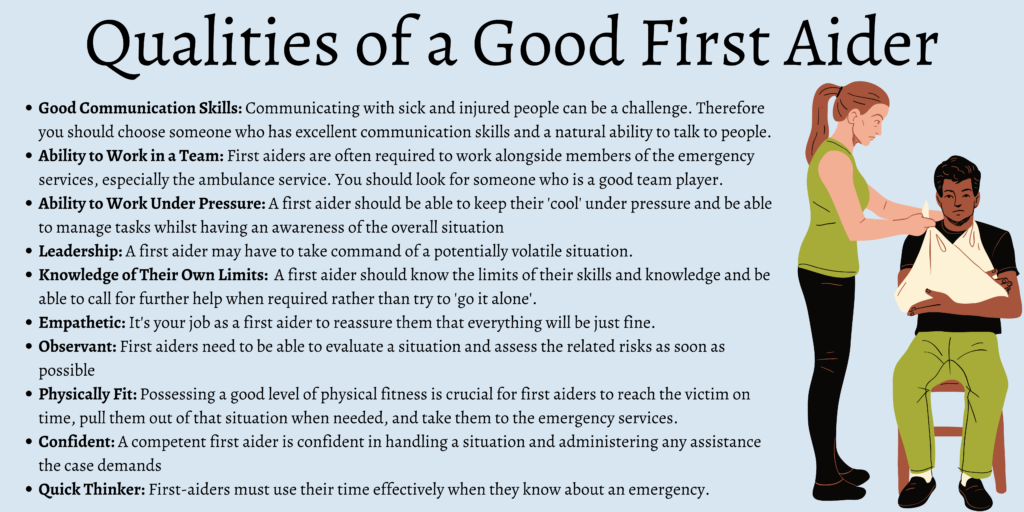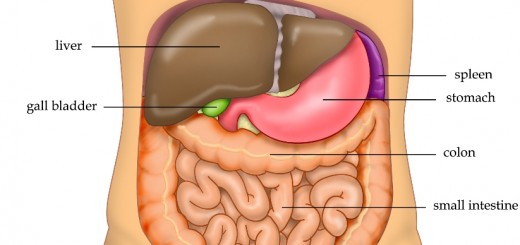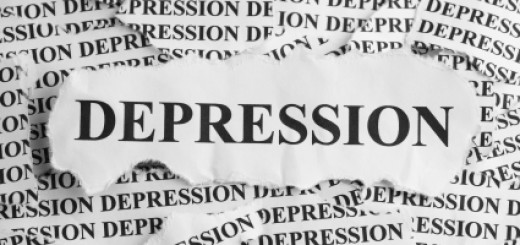Qualities of a Good First Aider
Whenever a medical emergency occurs, having a first aider around to attend to the situation makes a huge difference. First responders or first aiders can help the patients or casualties involved immediately until the emergency medical services arrive.
Access to first aid personnel might help in saving the lives of others, especially in high-risk environments, such as when individuals work from a height or operate heavy machinery. Several organizations these days also prefer to hire a first aider for the workplace.
In addition to technical and medical knowledge, there are several other qualities a first aider needs to possess that help them deal with emergencies in a collected manner. This article will discuss the most important qualities required to make someone an efficient first aider.
Good Communication Skills
Communicating with sick and injured people can be a challenge. Therefore you should choose someone who has excellent communication skills and a natural ability to talk to people.
Communication is key to good casualty care and is very important when passing the casualty onto the next level of care. For instance if an ambulance has been called, a first aider will have to give a handover to the paramedic.
Ability to Work in a Team
First aiders are often required to work alongside members of the emergency services, especially the ambulance service. You should look for someone who is a good team player.
Ability to Work Under Pressure
First aid situations can range from the mundane (a cut finger), to incredibly stressful and demanding (a cardiac arrest). A first aider should be able to keep their ‘cool’ under pressure and be able to manage tasks whilst having an awareness of the overall situation. If they panic, then they’re likely to make the situation much worse and cause the casualty further distress.
Leadership
A first aider may have to take command of a potentially volatile situation. He or she may be looked upon by his/her colleges to provide leadership during an emergency. A first aider may also have to organise bystanders to assist in various tasks, such as carrying out a spinal log roll.
Knowledge of Their Own Limits
A key skill of first aid is being able to recognize someone who needs quick emergency help. A first aider should know the limits of their skills and knowledge and be able to call for further help when required rather than try to ‘go it alone’.
Empathetic
When injured or affected physically, they are bound to feel scared, anxious, and confused. It’s your job as a first aider to reassure them that everything will be just fine. By doing so, you will be able to put them at ease till the final solution is delivered.
Having empathy, therefore, is imperative in this field. Be kind and understanding towards the casualty and attempt to keep them calm while you assess the severity of the case.
Observant
First aiders need to be able to evaluate a situation and assess the related risks as soon as possible. They should be observant enough to mentally jot down the risks involved at that moment for both the patients and themselves.
The ambiance surrounding the victim could bring about fresh risks. A first aider is responsible for identifying these risks, after which they should determine the action to take immediately, even before approaching the casualty.
Physically Fit
Emergencies can occur in different situations, including remote locations where it isn’t always possible to maneuver oneself easily.
Therefore, possessing a good level of physical fitness is crucial for first aiders to reach the victim on time, pull them out of that situation when needed, and take them to the emergency services.
Confident
A competent first aider is confident in handling a situation and administering any assistance the case demands. Even if they don’t receive a response initially or immediately, they should trust their skills enough to keep trying and persevering to save the patient.
Their confidence in themselves, in turn, gives confidence to the victim and their family members.
Quick Thinker
First-aiders must use their time effectively when they know about an emergency. By remaining calm and patient, they should be able to think of solutions on the spot.
For example, if they don’t have a certain tool available in their first aid kit at a given moment, they should know how to arrange for it immediately. Be resourceful and delegate tasks to those around you, ensuring that others carry out their responsibilities effectively.
Conclusion
The importance of first aiders can’t be overstated because proper first aid can handle injuries, deaths can be reduced, and the impact one faces during daily emergencies and disasters can be managed.
Being a part of this profession entails more than brushing up on your textbook knowledge. Through practical experiences, you can sharpen your skills and work on your qualities as a first aider to save as many lives as possible.







I need to be entering this page to check for what I dont know About .
I usually comment of what i dont know about.
I Want to know what i don’t know
This is good, i need to check this more often
This is good
Great points! A lack of communication can cause someone their life. Same as not being a team player. Thanks for sharing these valuable tips!
I have enjoyed taking this class online, it was so much better to understand.
Thanks! Glad you enjoyed our free courses
– John